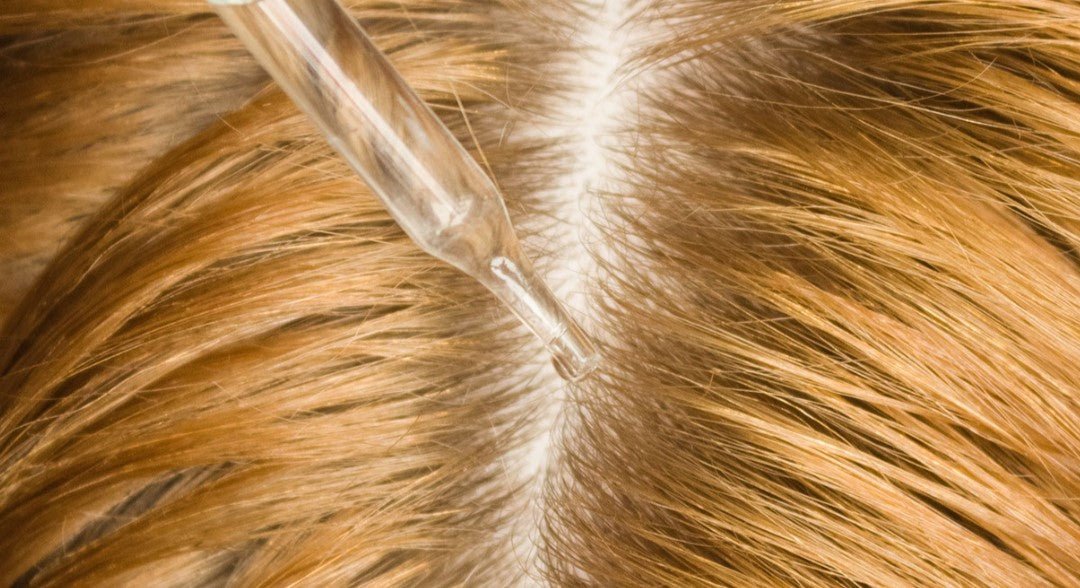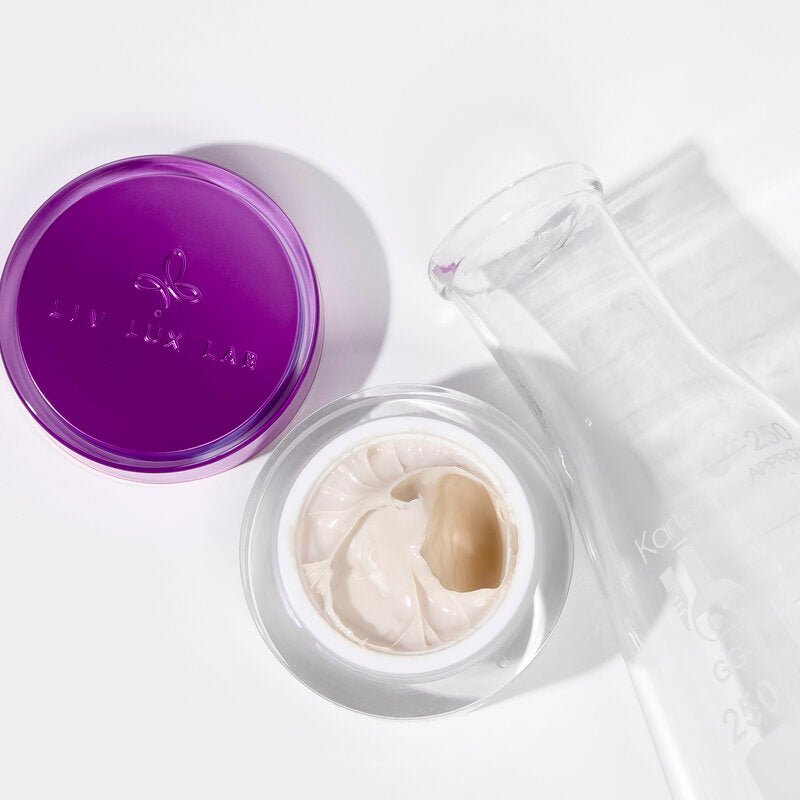Alopecia, otherwise known as hair loss, is a common problem for many people. Male pattern hair loss and female pattern hair loss (MPHL and FPHL, respectively) is the most common type of hair loss affecting nearly 80 million people in the United States (50 million men and 30 million women). If you're over 50 years of age, there is a 50% chance of developing MPHL in men, and approximately 40% of women develop FPHL. This form of hair loss is considered non-scarring hair loss and although the hair maybe falling out, if the hair follicle remains viable, hair loss can be temporary, and hair can regrow.
There is hope for hair regrowth thus, it is important to understand what causes hair loss to effectively treat it. Hair loss can be caused due to genetics but other factors such as hormonal imbalances, environmental factors, medications and medical conditions, abnormal hair pulling called traction alopecia, stress, and inflammation. This article will focus specifically on the role scalp inflammation plays on hair loss and how to treat it naturally.
What Causes Scalp Inflammation?
When you’re injured, inflammation is actually a good thing. When the body is working correctly, inflammation brings beneficial white blood cells in to fight infection and help you heal. Too much inflammation can be a bad thing and trigger chronic health conditions. Non-scarring alopecia stems from a variation in the hair cycle and hair follicle miniaturization, resulting in the subsequent reduction of hair of the scalp. In both MPHL and FPHL, the anagen phase of this cycle is diminished with every cycle while the telogen phase remains unchanged or even extended, yielding diminished hair growth and follicle miniaturization. Eventually, the decrease in the anagen phase and the premature transition of the anagen to catagen phase, leads to hair thinning and inadequate hair growth length. While this shorter anagen phase and follicular miniaturization are regarded as a key reason for MPHL and FPHL, it is important to note the presence of inflammation in the scalp during hair loss. Scalp inflammation can be caused by an infection, irritation and allergic reactions of the hair follicle. It can even be caused by the unhealthy hair products we use. When there is buildup on your scalp – natural or product-based – this can also trigger inflammation. Dirt, sebum, dead skin cells and sweat are natural forms of scalp buildup that can occur. Product-based scalp builup can be caused by silicone-based conditioner, styling gel, and talc based dry shampoos. This condition is called folliculitis. Folliculitis can obstruct healthy blood circulation, generate free radicals and cause the hair follicle to shrink due to swelling surrounding the hair follicle.
The Symptoms of Scalp Inflammation
You may think it’s not hard to spot when you are suffering from hair loss, but did you know most people don’t even notice they are losing their hair until they’ve lost 50% of their hair? It is normal to lose 50 to 200 hairs a day. The two most common signs of hair loss are shedding and thinning. We can spot this by seeing clumps of hair in the shower drain or when we start noticing a more visible scalp however, sometimes hair loss is not hair loss at all. Perceived hair loss can occur due to hair damage causing hair shaft abnormalities that lead to hair thinning. This type of perceived hair loss can be identified treated with effective bond-building treatments that are able to strengthen the hair against breakage like Save Me From Chemical Conflict. But what are the symptoms of scalp inflammation itself? Scalp inflammation can cause the feeling of itching, pain, redness, and swelling. If left untreated, scalp inflammation can lead to permanent scarring and nonviable follicles for hair regrowth. Fortunately, there are promising therapeutic remedies to help reduce inflammation and slow down hair loss. Natural remedies, such as aloe vera gel, tea tree oil, fenugreek and coconut oil, are common ingredients with anti-inflammatory properties believed to relieve inflammatory symptoms but what is it within these ingredients that actually help.
How To Treat Scalp Inflammation, Naturally
Another amazing ingredient shown to help reduce inflammation, and specifically help the scalp is fenugreek seed (Trigonella foenum-graecum L.). Fenugreek is a beneficial spice that has been used as an herbal medicine for treating metabolic and nutritive dysfunctions due to is rich concentration of phytocompounds. Fenugreek’s polyphenol compounds such as flavonoids and phenolic groups possess antioxidant, free radical scavenging, and anti-inflammatory abilities. These bioactives are also beneficial for skin, scalp and hair. Three active constituents from fenugreek seed were identified as the steroidal saponins that strongly suppressed the production of inflammatory cytokines. These results indicate that fenugreek extract and its active constituents could protect against skin damage. Polyphenol flavonoids found in fenugreek include naringenin and quercetin with benefits for hair. These flavonoids are adaptogens that can help the body adapt to stress. By helping the follicle adapt to stress, inflammation can be reduced for proper circulation responsible for feeding your scalp.
Inflammation can be caused for many reasons and the scalp can become inflamed for various reasons. If you are experiencing troubling symptoms, your body and scalp can respond with symptoms that impact hair growth. If you have severe symptoms, visit a medical professional as soon as possible. Here are some ways to optimize your scalp’s condition for the healthiest scalp possible:
-
Eat a balanced diet – Reduce processed food intake such as refined sugars and saturated fats. Here are some common foods known to possess anti-inflammatory properties:
- Berries are packed with fiber, minerals and vitamins. They also contain antioxidants called anthocyanins. These compounds have anti-inflammatory effects.
- Fatty fish are a great source of protein and the long-chain omega-3 fatty acids eicosatetraenoic acid (EPA) and docosahexaenoic acid (DHA) shown to help reduce inflammation.
- Broccoli are cruciferous vegetables rich in sulforaphane, an antioxidant that could decrease inflammation.
- Green tea is believed to be one of the healthiest beverages you can drink. It contains an antioxidant with anti-inflammatory properties called epigallocatechin-3-gallate (EGCG) to help.
- Turmeric contains curcumin, a powerful anti-inflammatory that’s been shown to help reduce inflammation related to arthritis and diabetes.
- Detoxify the scalp – Clear product buildup from the scalp and remove excess sebum. Save Me From Product Overload is a great product to use pre-shampoo to remove impurities without drying.
- Reduce stress – Stress is part of life and at some times, stress can be beneficial but when stress is chronic, it can lead to inflammation. Inflammation can be helped in multiple ways, through nutrition, topically and also through meditation and exercise.
- Massage the scalp – A scalp massage can encourage increased hair thickness by inducing stretching and stimulating – helping you relax and unwind.
- Use a product rich in the same phytonutrients as Fenugen – a toxin-free, concentrated blend of powerful phytoactives that work together to support the scalp environment, proven to thicken hair, reduce breakage and nurture the scalp.
Shop products rich in polyphenols shown to help reduce scalp inflammation.

The Ayurvedic Spice That Can Help
It's worth mentioning the hair reparative benefits of Fenugen. Inspired by Ayurvedic medicine, we've harnessed the fenugreek's rich phytonutrients including medium and long chain fatty acids, terpenoids, polyphenols, phospholipids and vitamins A, C and B variety vitamins and paired these with bio-boosters like ubiquinone (also known as Coenzyme Q10 for hair), organic karanja (also known as pongamia) and medicum chain triglycerides (MCT’s derived from coconut). Quercetin & naringenin are two just of the important polyphenol flavonoids found in Fenugen that can help widen blood vessels alongside polyphenol stilbenes that can help reduce inflammation and neutralize oxidative stressors such as hydrogen peroxide – which could be the culprit to your graying hair. Through a patented eco extraction process, we've magnified these phytonutrients into our clinically proven technology. Fenugen possesses the rich nutrients of fenugreek seeds in a complex 5x more potent in polyphenols. These nutrients include Vitamin A, B Vitamins, Vitamin C and more. With consistent, long-term use, hair bonds are rebuilt, hydration is restored helping to reduce frizz, the scalp is energized and nourished from within allowing hair that's more resistant to damage to emerge. Rooted in Ayurveda, our Fenugen is clinically proven to transform hair from tip to root, inside and out.
***
Ramos PM, Miot HA. Female pattern hair loss: a clinical and pathophysiological review. An Bras Dermatol. 2015;90(4):529–543. doi: 10.1590/abd1806-4841.20153370
NIH. Androgenetic Alopecia In: Medicine UNLo, editor. Genetics Home Reference. USA.gov; 2020.
Famenini S, Slaught C, Duan L, Goh C. Demographics of women with female pattern hair loss and the effectiveness of spironolactone therapy. J Am Acad Dermatol. 2015;73(4):705–706. doi: 10.1016/j.jaad.2015.06.063
Afifi L, Maranda EL, Zarei M, et al. Low-level laser therapy as a treatment for androgenetic alopecia. Lasers Surg Med. 2017;49(1):27–39. doi: 10.1002/lsm.22512
Cranwell W, Sinclair R. Male androgenetic alopecia In: Feingold KR, Anawalt B, Boyce A, et al., editors. Endotext. South Dartmouth (MA); 2000.
Ali Mandegary, Mostafa Pournamdari, Fariba Sharififar, et al. Alkaloid and flavonoid rich fractions of fenugreek seeds (Trigonella foenum-graecum L.) with antinociceptive and anti-inflammatory effects. Food and Chemical Toxicology, 2012, Volume 50, Issue 7, Pages 2503-2507, https://doi.org/10.1016/j.fct.2012.04.020.





